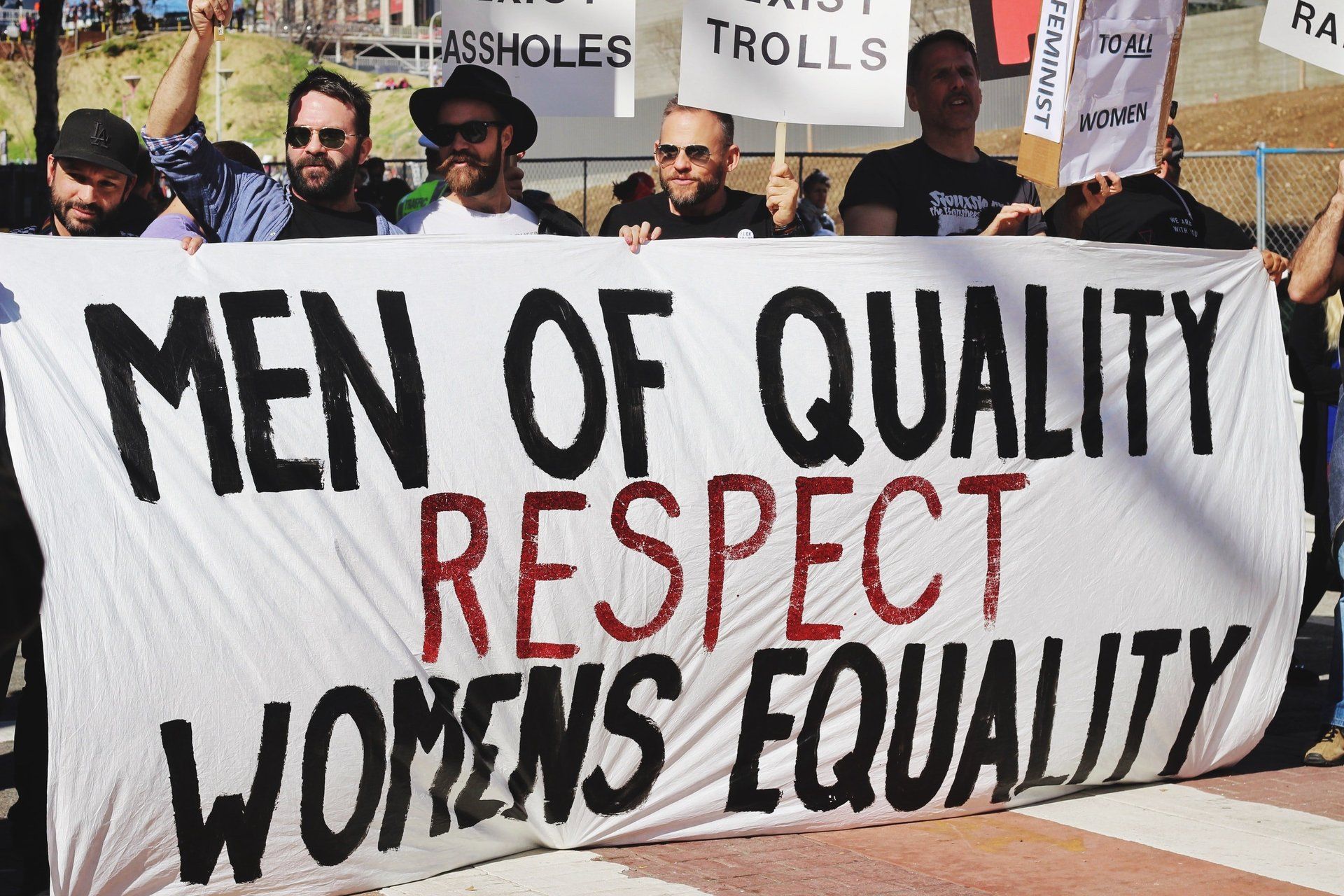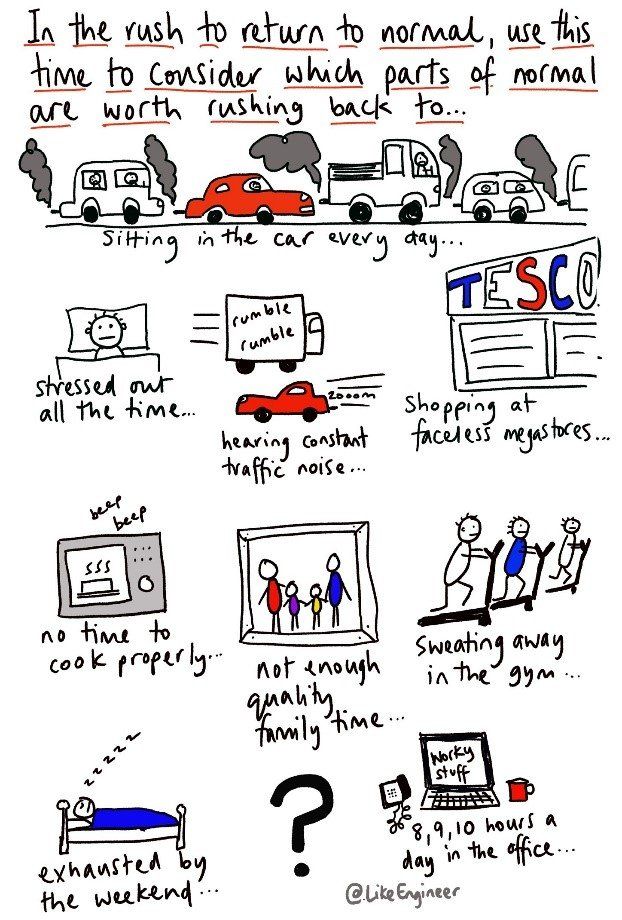after furlough
Alex Killick • 5 June 2020

The Chancellor of the UK has announced that the Government’s flagship Covid-19 policy: The Job Retention Scheme, must like all good things, come to an end. We have been given notice. The Government highlights that this level of unprecedented generosity will stop; the focus now is on gathering, rather than spending the UK Tax revenue.
In my first blog as Director of SHERPA I welcomed the bold move of the Chancellor and his team for the introduction of the Job Retention Scheme. I also argued for the introduction of Universal Basic Income as the sustainable solution to transition too. It was clear from the outset that the Job Retention Scheme could not carry on indefinitely, but what is also clear is that business, and society, needs some sort of transition. Simply pulling up the drawbridge will leave many stranded, with little hope of a positive future.
In setting out the plan to end the Job Retention Scheme, the Chancellor talked about Britain ‘returning to work’. However, for many, work has continued or adapted to the new Covid context. This has not stopped many companies who have been able to continue to operate having to make decisions to furlough staff. In other situations, for example in hospitality, whole workforces have been furloughed and for some employers, choices have already been made to let staff go.
Complex decisions now loom large for employers.
If the Job Retention Scheme is set to end in October for all, without any leeway for regions affected by a second peak of the virus, or industries not able to operate safely in a covid-19 context, then employers will need to think how they weather the continuing storm.
On top of this, we know that employees with caring responsibilities will still struggle to commit to pre-pandemic productivity levels simply because schools are not able to operate as they did before.
And of course, if we can get, or keep people working, employers need to recognise the mental toll lockdown and the threat of the virus have taken. In addition, many of our colleagues will be returning to work having experienced loss and experiencing profound grief in isolation.
Solid steps in uncertain times.
Step 1- Solidarity. First, and foremost, we would urge employers to make sure that they are maintaining meaningful engagement with staff who are on furlough.
Regular keeping in touch days, by zoom, by phone or even a card to say hello will make a positive difference.
Those employers that have stood by their employees, shared the pain, supported staff, and made up the shortfall in salaries will have positively reinforced their brand well into the future.
Step 2 – Skills. Do you know what skills you will need going forward? Do you know what skills your people have? Can you support your people to gain new skills? Are you having conversations to help employees understand that not every job can be protected but every employee can be assisted to retrain for your business or somebody else’s?
Step 3 - Support. Signposting and authentic support is important, now, not when furlough finishes. Do you know where to access advice and guidance and how best to support you staff? Statutory redundancy pay might be seen as compensation for loss of work but investing in an ‘elegant exit’ that enables people to move on with dignity and practical support is the possible and positive alternative if reskilling is not realistic.
In my experience where you involve people in the decisions that affect them directly, you almost always get a better outcome. If you simply take something away before the alternative is in place then you create worry, anxiety, fear and you are likely to lose all the ground gained and the value of all the pervious investment. All the goodwill garnered will evaporate and no guarantee that the economic equilibrium will cover the cost.
Reputations – hard gained, easy lost
While I would rather Rishi Sunak did not set a deadline or a target which then becomes part of the daily joust with journalists, politics is politics and this narrative of ‘final’ is intentional. I would hope though that if further lockdowns (local or national) become required, that some wriggle room could be found for the temporary furlough box to be opened, rather than locked forever, undoing all the gains made with this approach. Language is important. Trust is important. It is so easy for the one to undermine the other. A new narrative based on hope, not empty rhetoric, on action not short-term financial pressure. There is a real opportunity for furlough to be remembered for the right reasons. What actions we take now - as government, as employers, as citizens will shape our society for generations.
The Chancellor tells us that Business is supportive of this decision, and I have no doubt that some will want to see the Scheme go, but not necessarily for benign reasons. At SHERPA we support businesses that want to do the right thing by their employees, whether that is supporting the elegant exit during redundancies or keeping people engaged in challenging times. We can help with your route map. We can do the heavy lifting if you need it.

This week sherpa has joined the #BeTheRipple2020 movement. We have long been supporters of Good Work and Fair Work, and the intention to make work better, more meaningful and workplaces more diverse and truly inclusive. We still have such a long way to go. #BlackLivesMatters shows the inequalities that persist and the impact of lockdown is felt most keenly by those furthest from the decision making. It is fair to say that in all areas attempts to ‘level up’ are at best moving at a glacial pace. Change can happen where there is a will, and sometimes when the right chord is struck at the right time. The simple, polite, kind and determined resolve of a talented young footballer has prevented the political elite from scoring a huge own goal. What if we built kindness into our policy thinking rather than be embarrassed into making change? This is as much for policy makers at government level as it is for employers. The #BeTheRipple movement is bringing together hearts as well as minds to help us all focus on making our worlds kinder. Better. If you want to find out more please visit https://www.betheripple.co.uk/

Today is International Women's Day. I explained to my daughter on the way to school that today is a day to celebrate women; An opportunity to remember the struggles of women who have come before us and to recognise the ongoing work to make sure that she can achieve whatever she wants in life. Now my little one is only seven years old, so I probably shouldn't have been too surprised when she said that my monologue on the way to school was a 'bit much'. However, she proceeded to tell me that lots of people seem to forget that 'girls are people too'. She went on to tell me about Trudy Ederle and Mary Anning and how silly people thought that Trudy could not swim the English Channel and that Mary could not possibly know exciting things about fossils simply because they were women. She concluded by saying there were a lot of silly people a long time ago but if she knows that women are equal people and she is only seven, then surely everyone else knows that women are equal people too? Unfortunately outdated stereotypes and working practices prevail. These prevent people achieving their full potential, and it seems in some places women are not always 'equal people'. To borrow from my daughter; In 2018 this seems rather 'silly'. #IWD2018 heralds a new start for SHERPA. We are focussing on activities that will support individuals and organisations grow in confidence. By doing so, we aim to help individuals and organisations challenge 'silly' people and practices out there, the ones that limit the performance of talented people in the workplace.

There has been an absolute outpouring of outrage following the revelations from the now infamous Presidents Club dinner. One response that caught my attention is a blog post by Susan Chambers, an HR Director in the FE sector . She refers to her assumption that based on her own experience such practices in the workplace were a thing of the past, however the #metoo movement , the necessity for the Angela scheme and of course the furore surrounding the Presidents Club lead her to question if there is a better way to call out unwanted behaviour. She suggests that ‘no’ isn’t working and a red card initiative may be more effective. Now, I understand her sentiment, however, in a way it suggests that responsibility for change lies primarily with the individual on the receiving end of unwanted and inappropriate behaviour; is it really up to women to educate those who exhibit bad behaviours and abuse positions of power, in the moment of the abuse? Blogs like Susan's, the Time's Up campaign and #metoo provide helpful (and necessary) platforms for challenging conversations. Such conversations will hopefully give confidence and courage to anyone subjected to unwanted attention so that they can say 'no' in the moment. However, I think it is naïve to assume those who abuse power will change their behaviours at the sight of a red card. Harvey Weinstein didn’t behave the way he did because he thought it was acceptable, he acted the way he did because he knew he could ; the evidence suggests that he was routinely called out by women, their partners and their agents, he knew he was doing wrong, he just thought he was untouchable. Regarding the Presidents Club and the message in Susan’s blog, I would argue that we should not be placing the emphasis on the hostesses to challenge the behaviour of well-heeled drunken louts. We should be turning our attention to the employment practices of the agency supply the staff and the trustees responsible for the organising and commissioning of the event. Just as employers should ensure that their procurement practices ensure staff providing services on their behalf receive fair compensation, they should also ensure that all staff, regardless of contract type, are provided with a safe working environment, and this must extend to protection against harassment in the workplace, from colleagues or customers. As such, the spotlight at this time must be on the Presidents Club trustees and the agency who supplied staff time and time again for this event. However more generally, Susan is right to be angry at the situation we find ourselves in. We need workplace cultures (and a society) where individuals know that inappropriate behaviour is not accepted and that there will be complete support available to a complainer should a situation arise that necessitates ‘an ask for Angela’ moment or the showing of a red card. The easy thing is to put up the posters or to print the red cards. The difficult thing is to create the conditions that not only allow complaints to be heard but also allows complaints to be dealt with transparently. I would argue that to do so goes way beyond new ways to convey old messages, the development of perfectly formed policies or sheep dip training. Leadership teams and colleagues in human resources need to reflect on how often bad behaviour (sexual harassment or harassment in any other form) is in fact tolerated or quietly managed out rather than publicly booted out of the organisation. If leadership teams are not brave enough to call out the bad behaviour, name it and show that it is toxic, why on earth would anyone on the receiving end of the behaviour believe that their back is covered if they show the red card? So, red cards? Ok, give it a go, but they must be used visibly by those at the top; otherwise, those with the inclination to abuse power will continue to believe that they are untouchable.




